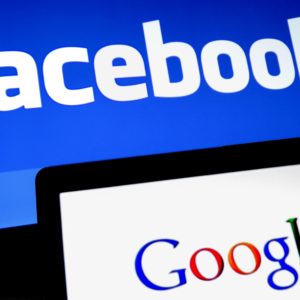Public policy often amounts to little more than a shell game, especially when it comes to taxes and regulation.
Politicians will often tell you they “only” want to raise taxes on big corporations, not middle-class families, for example. But, as advocates of lower corporate taxes routinely point out, the cost of corporate taxes and regulations doesn’t come out of some vast corporate vault filled with gold coins, à la Scrooge McDuck.
Those costs are borne by the paychecks of corporations’ employees and customers alike. This is why taxpayers should be alarmed by the recent and bipartisan efforts to upend our nation’s antitrust laws.
Under the antitrust microscope of both Congress and state attorneys general are America’s “Big Tech” companies, particularly Alphabet (Google), Amazon, Apple and Facebook. However, none of these firms neatly fit the bill for antitrust action under the current understanding of the law.
For starters, all of these companies — oxymoronically referred to as “monopolies” — vigorously compete with one another in multiple market segments, from advertising to hardware sales. Just last year Facebook and Apple executives traded barbs in the media regarding the privacy practices of each other’s companies.
Companies that don’t compete with one another generally don’t behave like this. When’s the last time Coca-Cola and Goodyear publicly traded insults?
In addition, for the last half-century or so American antitrust law has been grounded in what is known as the consumer welfare standard. It’s not a complicated concept.
As its name implies, antitrust action is generally only pursued if a merger, acquisition, or practice of a company or companies is harming the consumer through things like higher prices. In the case of big tech, it’s hard to see where this is occurring.
Many of the consumer-facing services provided by firms such as Facebook and Google are provided at no cost to the consumer. Those businesses are fueled by advertising, which has seen collapsing prices.
One of the key complaints against Amazon? Their prices are too low. Even in hardware sales, a cornerstone of Apple’s business, the Bureau of Labor Statistics estimates that prices have been cut in half over the last decade.
Simply put, any case against these big tech firms would be very wonky and therefore very weak. You’d be hard-pressed to find an American that would have rather gone through the last few months of coronavirus-related shutdowns without being able to order cheap supplies from Amazon or connect with loved ones on Facebook from their Google Android or Apple iPhone.
Of course, nothing stops politicians looking to make names for themselves. They come from both sides of the aisle and from the federal and state governments. Most seem to be exhibiting the “first day of prison” strategy, picking a fight with the biggest brute in the yard to establish their own dominance.
The trouble is that the consumer welfare standard is standing guard and naturally must be dispatched with first.
Unmooring antitrust law from the consumer welfare standard might allow politicians to pursue their various pet grievances, from content moderation to privacy, against big tech companies.
But it would also open the floodgates on the rest of the economy.
Political actors throughout government could potentially attach all sorts entirely peripheral strings to antitrust enforcement. Could a merger be weighed by its impact on carbon emissions? Or how many of their products are sourced from America versus overseas?
We already see shameful examples of this, with companies avoiding antitrust scrutiny through job guarantees and other token promises for politicians to put in press releases. Imagine if such a practice goes from de-facto to de-jure.
The uncertainty of political demands, let alone new regulations imposed through antitrust enforcement threats and action, would amount to an enormous cost passed directly to American consumers through higher prices and reduced economic dynamism.
Make no mistake, this is not a red versus blue issue. There are prominent figures on both sides of the aisle eager to toss aside the shackles of the consumer welfare standard for short-term political gain. This is purely an issue of government accountability.
Regardless of the various complaints about big tech, four companies competing in various markets where prices are falling (if they aren’t already zero) cannot possibly pose a bigger threat to taxpayers than granting political actors unchecked authority through a rewrite of antitrust.

